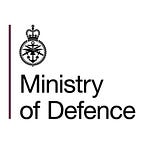Are British soldiers still in Afghanistan? Here’s three things you need to know.
Operation TORAL is the codename given to the British element of NATO’s Resolute Support mission in Afghanistan.
Since combat operations ended in 2014, British forces and NATO allies have committed significant resources to Afghanistan. With the aim of helping to rebuild and provide ongoing security in the region.
British troops are now stationed in Kabul (and have been since 2015) where they take a leading role in operations and keeping Afghanistan from becoming a safe haven for terrorism. In turn, keeping the streets of Kabul safe, keeps terrorists off the streets of the UK.
Here’s three things you need to know:
1. What is NATO’s Resolute Support mission?
Resolute Support is a NATO-led, non-combat mission to train, advise and assist the Afghan National Defense and Security Forces (ANDSF).
It helps the Afghan security forces and institutions to develop the capacity to defend Afghanistan and protect their people in a sustainable manner.
The Resolute Support Mission is currently made up of around 17,000 personnel from 39 NATO Allies and partners countries.
2. What are the UK Armed Forces doing in Afghanistan?
Alongside military activities, the UK Armed Forces support a wide range of projects including improving education, healthcare, economic growth and local governance in Helmand and across the country. These have been made possible by improved security provided by international troops and the Afghan National Security Forces.
Force Protection
Stationed in Kabul, the British lead within the 7-nation-strong Kabul Security Force (KSF), which provides force protection and protected mobility for coalition mentors as they advise around the country’s capital.
As part of the KSF, the British Army’s Quick Reaction Force — an armed military unit capable of rapidly responding to developing situations — are helping provide vital security for Afghan security forces.
Toral Aviation Detachment (Puma)
The RAF’s Puma helicopters and their crews deployed in Kabul provide helicopter support for the NATO forces. Being the movement asset of choice in Kabul, the Puma’s agility and capability of the crews and aircraft are unparalleled, operating in all conditions — even the harsh Afghan winters.
Afghan National Army Officers’ Academy
The British Army also provides training and advisory roles within the Afghan National Army Officers’ Academy and Infantry Branch School among other Afghan institutions. Dubbed, Sandhurst in the sand.
This training is integral to producing the country’s next military leaders, and now sees female and male officer cadets training side by side together.
3. Why Afghanistan?
Many will remember the devasting terrorist attacks against the United States on 11 September 2001, in which nearly 3,000 people were killed. 67 of those were British.
9/11, as it became known, was the work of Al-Qaeda terrorists, led by Osama bin Laden. At that time they enjoyed the freedom and security of bases in Afghanistan, under the protection of the brutal Taliban regime.
The UK stood alongside international allies against the actions of the terrorist group.
Together with our international NATO allies, we will prevent the country from becoming a safe haven for international terrorists to once again plan and coordinate large scale attacks such as 9/11.
Find out where else the UK Armed Forces are deployed here:
